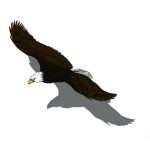Dad was 19 years old, and his army boots were brand new. In England, they were readying for the invasion of Europe—D Day. Dad was slated for Omaha Beach with his unit. Before the invasion across the channel, the soldiers in England were tested for, among other things, hepatitis. Dad tested positive. He explained that he’d had hepatitis, but was long over it. Young men’s enthusiasm for the war and pursuing Hitler was so high, the doctors didn’t believe him. They kept him back for two weeks of observation, and so I am alive.
Dad’s unit was slaughtered, far above 90% of those young men died on Omaha Beach, raked by German machine gun fire.
Dad arrived with the second wave. Later, in Belgium in miserable weather, Dad was driving fast in an open Jeep, a satchel of orders and information at his side. The rain and mud were terrible on the dirt roads, but the little Jeep had four wheel drive and a tall, vertical hook welded onto the Jeep’s front bumper intended to cut decapitating piano wire stretched across the roads by retreating Germans. Rain, mud and puddles, the Jeep could handle. Next thing Dad knew, he was soaked to the skin and regaining consciousness in a grassy pasture, his papers scattered around him and the Jeep behind him, toppled on its side. Now mud puddles, Dad and the Jeep could handle, but not deep shell holes in the road, filled with muddy water that looked like harmless puddles! Dad shook off his unconsciousness with the help of the cold rain and rocked the Jeep back and forth until he could coax it to fall, bouncing back onto its wheels. Dad drove on, carefully avoiding puddles and delivered the satchel.
Dad was with an anti-aircraft unit during the Battle of the Bulge. The weather was foul, and no planes—ours or theirs were flying. His unit was nearly surrounded by the flux of armies moving in dark forests during this desperate assault and drive to split the Allies by the Nazis. The Americans could hear the sounds of German mechanization close around them through the trees. Dad’s unit held their position, but lowered their anti aircraft guns down to horizontal, pointed back along the road they’d come on, ready for a final fight. The big anti-aircraft cannon, useless under grey stormy skies; could still give German tanks a fight. Engines were heard, and the rattling clank of tank treads, coming along that heavily forested, curving road. Coming toward Dad’s unit. Around the final curve came a Jeep, with an American major, followed by American half-tracks. The major stopped at those big, horizontal anti aircraft guns and said to Dad’s unit officer: “Lieutenant, you are relieved!” “And how!!” replied the lieutenant!
Later, Dad (and those boots) had a German officer at the business end of his M-1 Garand rifle. Dad had taken the man prisoner and was marching him to a hastily erected Allied prison camp. The Battle of the Bulge was raging, and Dad could tell that the officer was fearful. The Germans, you see, were not taking prisoners. Any allied soldiers captured were simply shot dead. Dad and the officer were alone, walking along the side of a road. Dad spoke some German, and seeing a pair of binoculars around the officer’s neck, asked the man in German if he would like to trade? The fearful officer, using one of his raised hands, swiftly whipped the binoculars off of his neck and extended them to Dad. In German Dad said: “No. You are my prisoner, but you are still a man. If you want to trade, we trade. If not, then not.”
Dad knew that the German would not be allowed to keep binoculars in a prison camp. In WWII American soldiers always received cigarettes with their K-Rations, and Dad was a non-smoker. Dad also knew that for the German officer, cigarettes would be like money in the prison camp. He gave the man plenty.
The war was winding down, the Nazis were on the run, back to the Fatherland, and Dad wasn’t in immediate danger. Or so it seemed.Riding in an open half-track with some other soldiers, one of the men decided to have a can of soup. Dad described the canned soup as having a fuse in a metal tube, down the center of the can. You’d poke a hole in the top of the can, light the fuse in the middle, and then open the can and have hot food! Great stuff! Well, the soldier lit the fuse, but forgot to use his GI can opener to poke a hole in the can lid. – “TAKE COVER!!!” All the men were indeed covered, (including those boots), by a hot mess. The “celery soup bomb” had gotten them all! I still remember Dad, laughing as he told the story of the “celery soup bomb.”
Dad didn’t speak of the war for 50 years. My brother and I learned not to ask. But in his 70s, Dad opened up a little, and these are some of his memories of World War II. I wasn’t as close to Dad as my kids are to me. Dad, a man of his times, was a tight lipped stoical sort. I’m happy he shared these and other stories with me before he died. My sister Kate sent me the boots, just as they are. Getting older myself now, I think that the boots (and the feet that wore them) are better appreciated by us all, and not left setting in my garage. Amazing to me, today, that young men, 18 or 19 years old fought Hitler’s armies and helped to deliver Europe from the scourge of National Socialism in 1945.

